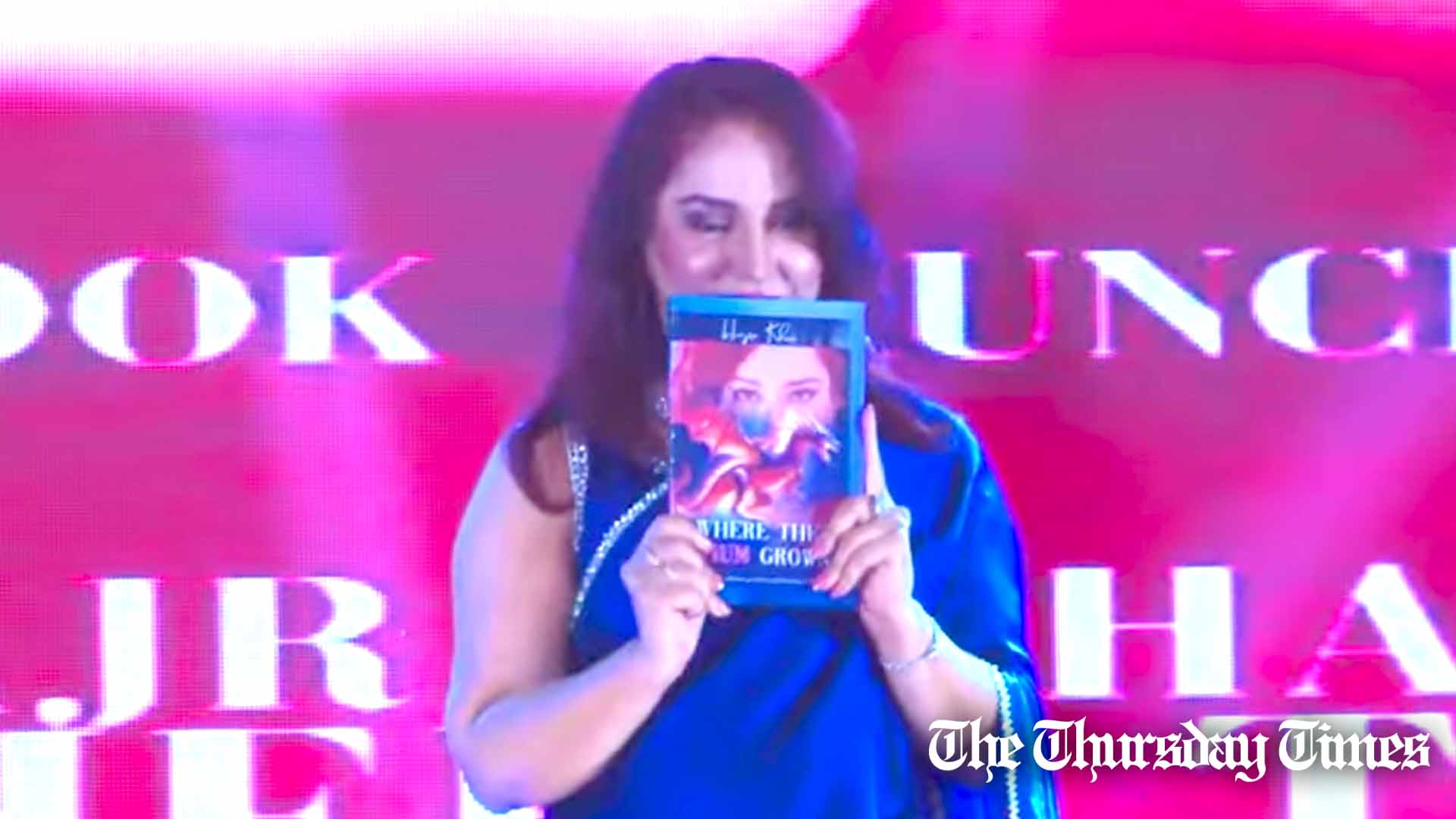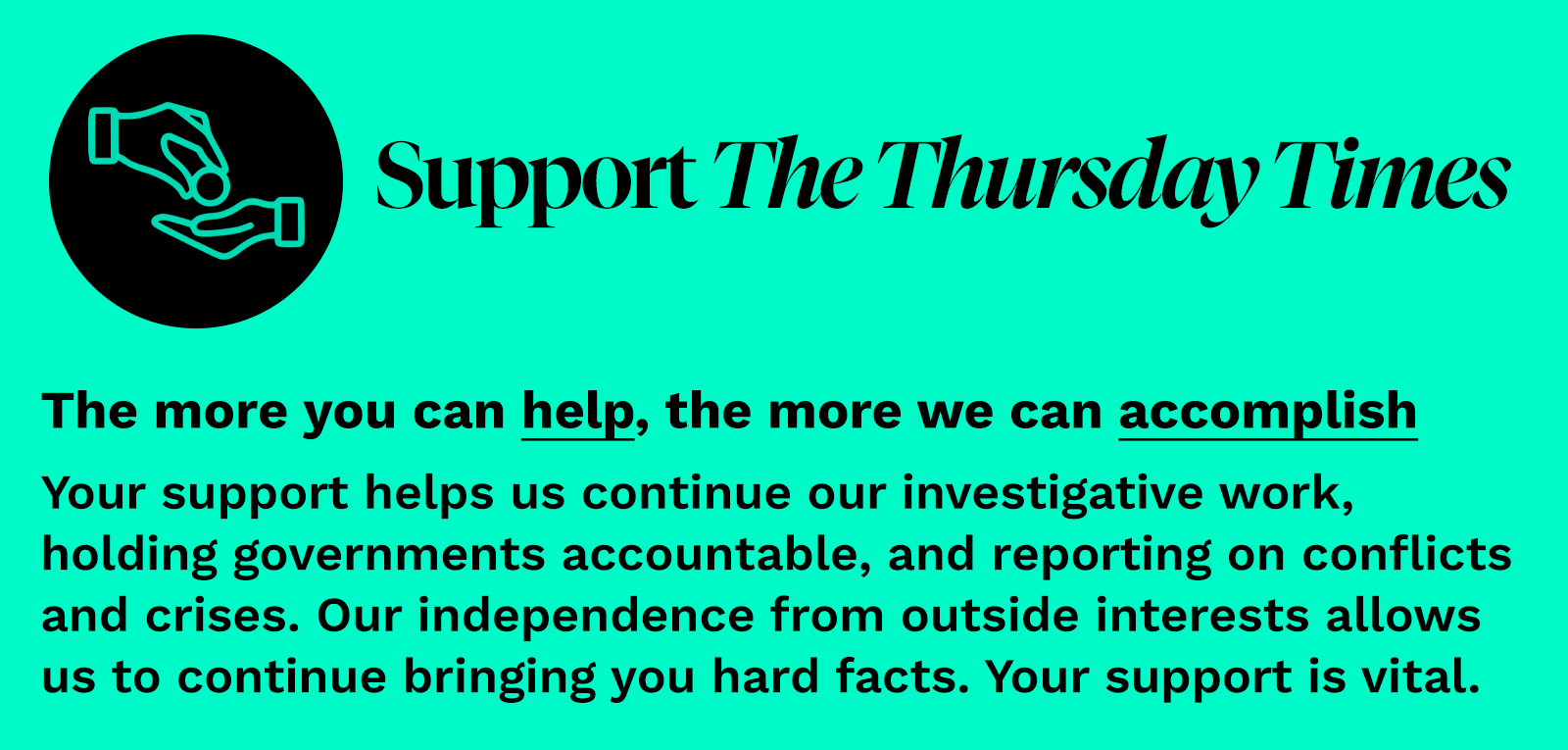ISLAMABAD (The Thursday Times) — Hajra Khan, the Quetta-born actress and writer known for her roles in “Pinky Memsaab” and “Buri Aurat,” has unveiled the complete version of her previously-censored book, “Where the Opium Grows: Surviving Pakistan as a Woman, an Actress and Knowing Imran Khan,” at a launch event in Islamabad’s prestigious Serena Hotel. The book, written nine years ago but censored until now, critically examines the rise of Imran Khan in Pakistani politics.
Also known as Hajra Panezai, Khan’s educational background in Business Management from Ireland’s Dublin Business School complements her acting career, providing a multifaceted lens through which she views and critiques the socio-political landscape of Pakistan.
Khan’s book delves into the policies and persona of Imran Khan, leader of the Pakistan Tehreek-e-Insaf (PTI) party, intertwining her political critique with personal reflections and cultural observations. Her narrative includes a mix of disillusionment, hope, and a plea for change.
During the book launch, Khan shared her prolonged struggle to publish the work, revealing, “When you write something like this, you can’t really predict whether or not this will be published or whether it will reach the masses. It took 9 years to be published in full, for it to reach the masses. When I wrote the book 9 years ago, it wasn’t published to its fullest extent. The accounts I had on Amazon and other distribution platforms in order to publish this book were hacked and they haven’t been restored to this day. So, to those who say ‘where did this book come from all of a sudden?’ just know that I wrote this 9 years ago and it’s taken 9 years of struggle and hardship for this to be published in full. This hasn’t been commercially published just yet. I still get nervous, I get scared as to when I discuss it.”
Reflecting on the political scene, Khan lamented, “We made someone a messiah—and I include myself in this—who promised us change and innovation, and to those who criticised him I say sorry. I regret this.” Her words speak to the collective disillusionment felt by many who had believed in the supposedly-transformative promise of Imran Khan’s leadership, only to be left with regret and disappointment.
Khan also addressed the controversial statements made by Imran Khan in 2021 about women’s attire and sexual violence, “If someone can say that it’s the woman’s fault if she gets raped because men are not robots, that isn’t just a personal statement. It’s a personal attack on me, as a woman. If I am wearing a sari, I didn’t get this from a Toshakhana. I bought this with my own money. I am a taxpayer. If I run for government, then you can question if I’m immoral, if I’m running for office. That’s your right to ask me this.”
The release of “Where the Opium Grows” is timely, given the current volatile political and social climate in Pakistan, particularly regarding debates on women’s rights and freedom of expression. Khan’s book is not just a political exposé but also a statement on the societal norms and the role of women in Pakistan.
The event attracted a wide array of attendees, signaling the beginning of an important conversation about political accountability and social justice in Pakistan. Hajra Khan’s transformation from an actress to a critical voice in literature underscores the importance of diverse perspectives and the role of art and literature in shaping societal narratives and public discourse.




